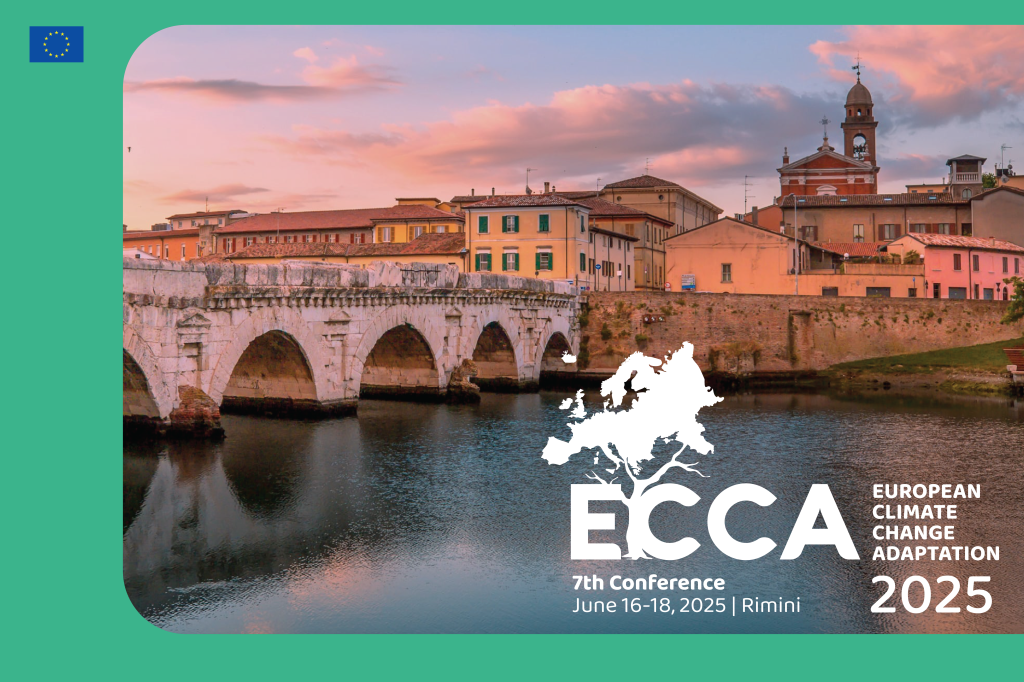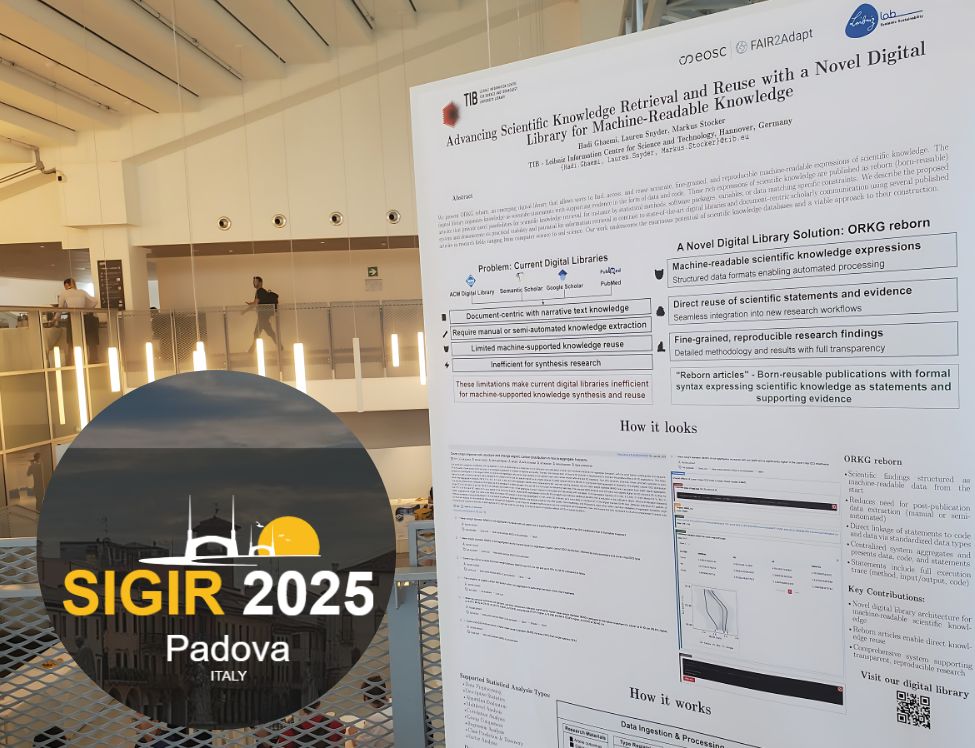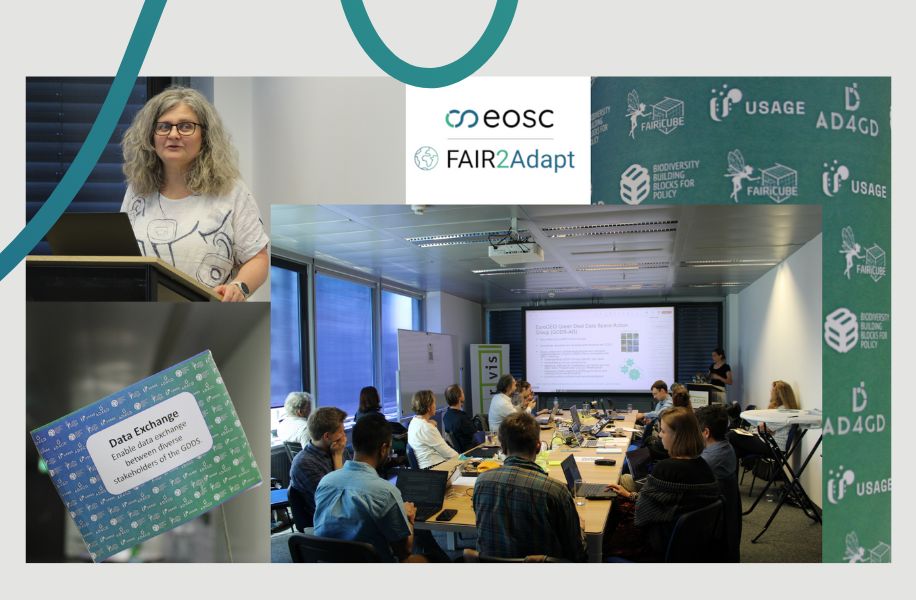Insights from the 2025 European Climate Change Adaptation (ECCA) Conference in Rimini
By Lauren Snyder
The effects of climate change are no longer predictions, they are headlines. This simple, yet powerful statement made by plenary speaker Carlo Buontempo (European Centre for Medium-Range Weather Forecasts) eloquently encapsulated the motivation behind the 2025 European Climate Change Adaptation conference. Hosted in Rimini, Italy from June 16-18, the biennial conference brought together climate change researchers, decision-makers, and practitioners working towards a climate-resilient society.
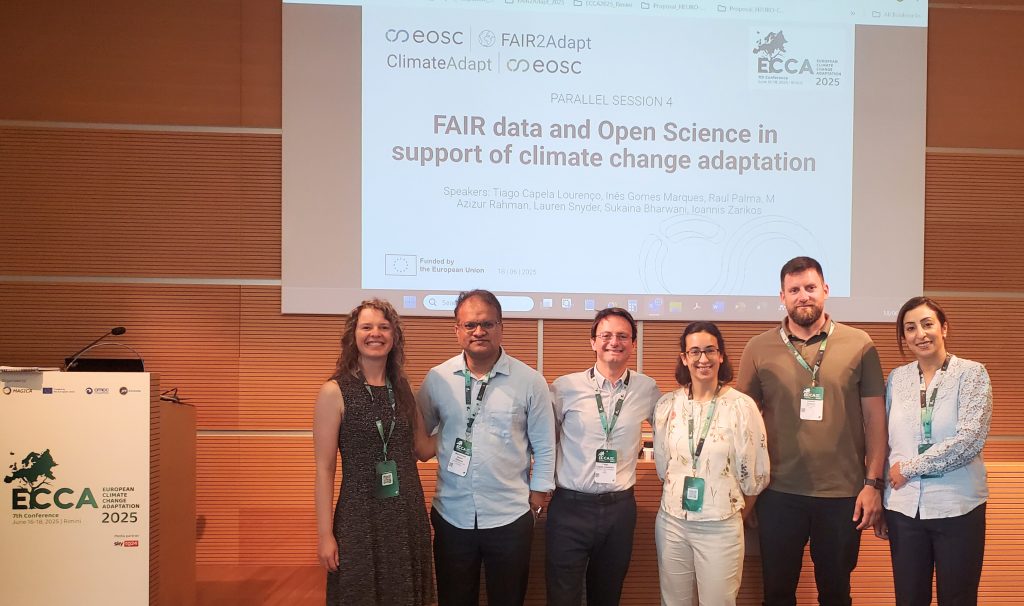
Among those stakeholders was an international team of researchers and practitioners representing FAIR2Adapt and its sister project ClimateAdapt4EOSC, two EU-funded projects strengthening climate change adaptation workflows. The team hosted an interactive scientific session to explain how the FAIR (Findable, Accessible, Interoperable, and Reusable) data principles can enhance the impact of climate change research.
Professor Tiago Capela Lourenço from the Centre for Ecology, Evolution and Environmental Changes (CE3C) in Portugal welcomed participants to the session before handing it over to Dr. Inês Gomes Marques (CE3C) and Dr. Azizur Rahman (Technovative Solutions) for a brief introduction to the two EU-funded projects.
While both projects just launched at the beginning of 2025, they introduced new FAIR tools and approaches as well as several case studies of their planned implementation across Europe. One approach that was discussed, reborn articles, allows researchers to produce scientific results that are readable by humans and machines. Developed at the TIB–Leibniz Information Centre for Science and Technology, the approach aims to move scientific publications into the digital era, similar to what tools like Google Maps and Waze have done for navigation. The session also provided a peek under the hood, so to speak, of these tools. Dr. Raul Palma (Poznan Supercomputing and Networking Center) introduced RO-Crates, which efficiently package research data with their metadata and are one of the technologies powering FAIR tools like reborn articles.
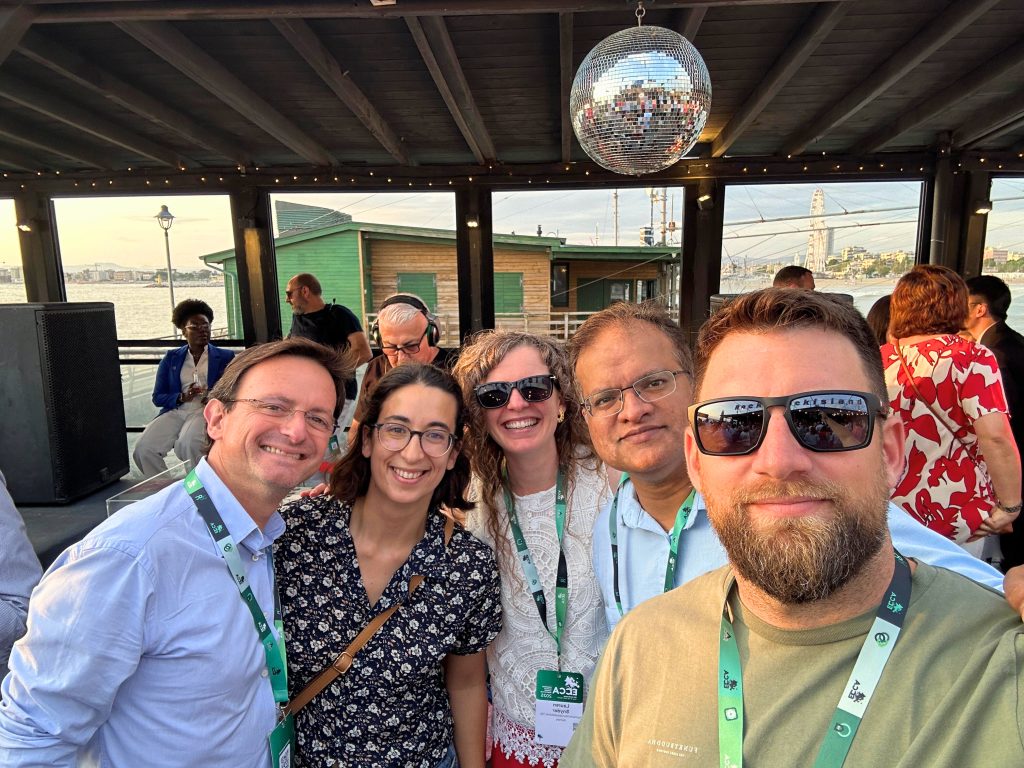
Real-world applications of these and other FAIR tools were highlighted by Dr. Sukaina Bharwani (Stockholm Environment Institute) who announced the launch of the Climate Connectivity Hub, a new search tool that helps users find relevant climate change knowledge. Dr. Marques returned to the podium to share preliminary plans for incorporating FAIR tools into the Portuguese National Adaptation Hub, which aims to gather and organize trusted climate change knowledge that is currently dispersed across a wide range of portals, platforms, and initiatives. Wrapping up the panel presentations, Dr. Ioannis Zarikos (National Centre of Scientific Research “Demokritos”) introduced an initiative to shelter vulnerable communities from the urban heat-island effect in Egaleo, Greece, by working towards a digital twin, or virtual representation, of the city to model climate risks. The FAIR data management approaches under development in ClimateAdapt4EOSC will play a crucial role in this direction.
But beyond a glimpse into two developing projects, the session was also an opportunity to build relationships with the climate change adaptation community. A lively round table discussion exposed a recurring theme related to the importance of local community knowledge and gray literature like national adaptation plans, which tend to be more qualitative in nature. This feedback prompted the panel to begin considering how their tools could account for such knowledge sources and will help shape the trajectory of both projects. To act on this feedback, the project teams are exploring a joint follow-up meeting in Lisbon, Portugal, so stay tuned for the tools and services that emerge!
Session Info
The scientific session “FAIR data and Open Science in support of climate change adaptation” was hosted by FAIR2Adapt and CLIMATE-ADAPT4EOSC, which are funded through the Horizon Europe Framework Programme.
Speakers (in alphabetical order)
Sukaina Bharwani (Stockholm Environment Institute)
Tiago Capela Lourenço (Centre for Ecology, Evolution and Environmental Changes – CE3C, Faculty of Sciences, University of Lisbon)
Inês Gomes Marques (Centre for Ecology, Evolution and Environmental Changes – CE3C, Faculty of Sciences, University of Lisbon)
Raul Palma (Poznan Supercomputing and Networking Center)
Azizur Rahman (Technovative Solutions)
Lauren Snyder (Leibniz Information Centre for Science and Technology)
Ioannis Zarikos (National Center for Scientific Research Demokritos)

